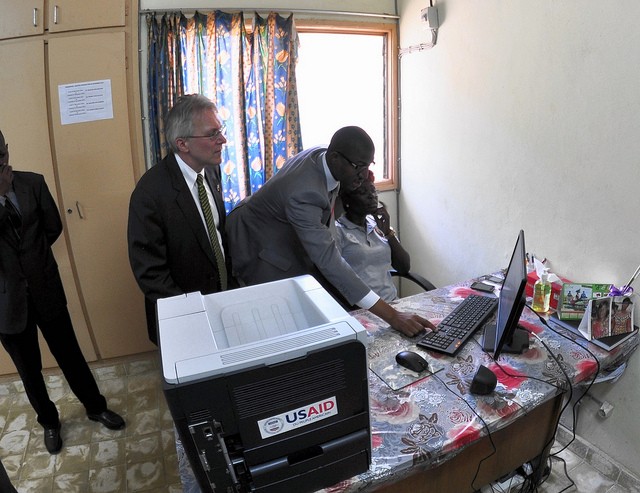
The insecurity and unrest in the early 2000s and the violence after the 2010 election disrupted the justice sector in Côte d'Ivoire. This instability led to widespread looting and destruction of infrastructure in the judicial branch and throughout the government. Only recently have judges and prosecutors started returning to their posts, but the country is still facing challenges that are common in post-conflict societies, like land disputes, vulnerable populations confronting social exclusion, gender-based violence, and disaffected youth.
Côte d'Ivoire has well-qualified lawyers and judges, but the justice system has become polarized and politicized. Magistrates lack motivation and adequate funding, clerks lack accountability, and rulings come slowly and lack uniformity. The cost of accessing the system has traditionally been inflated due to the fee scale and the ubiquity of “middlemen” who interpret legal procedures for uneducated populations. Procedures are cumbersome and lack transparency while justice sector staff have inadequate working conditions and security concerns.
The United States and Ivoirian governments both see judicial reform as central to the reconstruction and reconciliation process. This necessary support of the judicial sector is implemented by Tetratech with a five-year, $19 million project called ProJustice. The goal of this project is to make the justice sector more effective, accessible and equitable through a robust training program targeting key actors in the justice sector, equipment support and infrastructure rehabilitation.
OBJECTIVES & ACTIVITIES
Objective 1: Improve the existing justice system.
The ProJustice project will hold training programs to help judicial police, magistrates, and judicial administrative agents work more effectively. The project will also offer support to improve their ability to track, process and manage judicial cases in targeted communities to increase transparency and accountability.
Objective 2: Improve and facilitate access to justice.
The ProJustice project aims to improve citizens’ access to justice by strengthening legal aid resources and creating a broad information campaign to help public understanding of how the judicial system works and what they can expect from it. The project will also provide and upgrade infrastructure and equipment to increase the effectiveness and output of specialists working in the judicial sector.
ACHIEVEMENTS
- Deployed court coordinators to 11 pilot courts throughout the country to offer hands-on assistance in case management, information technology, and monitoring/evaluation.
- Created methodological and pedagogical tools to generate changes in behavior on the part of judges, prosecutors, and clerks working in pilot courts and their supervisors in their daily work.
- Hosted a seminar to study and improve proposed legislation on improving the judicial assistance system.







Comment
Make a general inquiry or suggest an improvement.